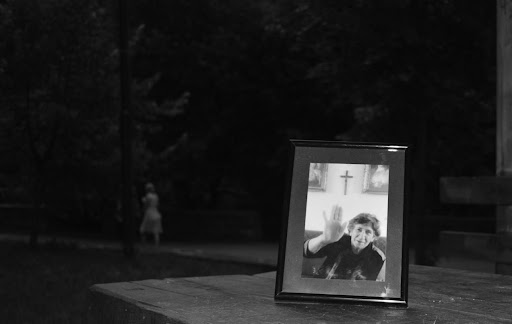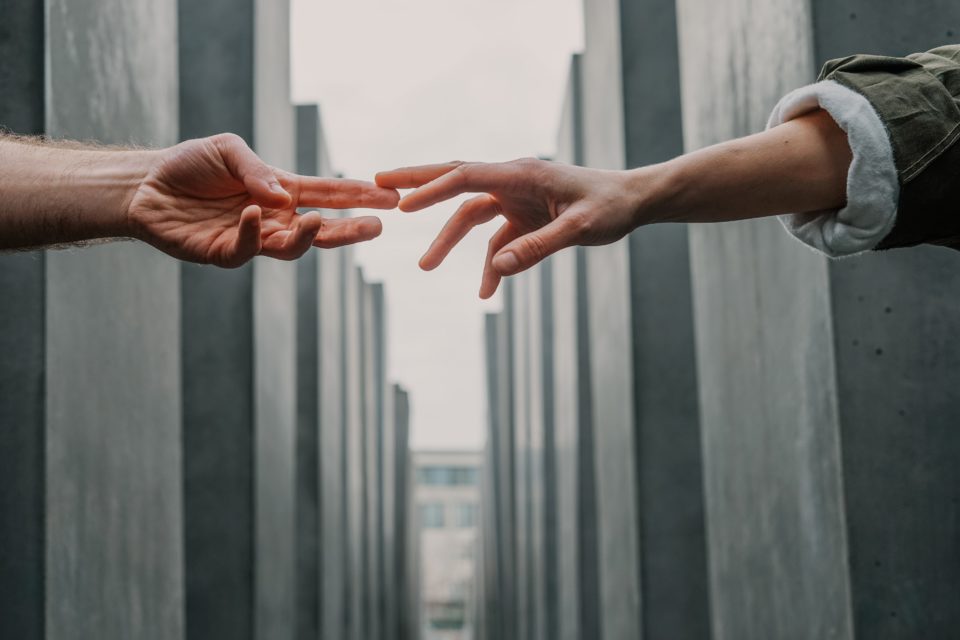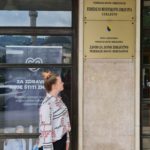
Jelena Križanac from Krčevin, in Vitez Municipality, is described by her fellow citizens as a hero. During the war in Bosnia and Herzegovina (1992-1995), she saved many lives, displaying wisdom and bravery, without any regard to ethnic or religious differences. Although she has passed away, her children carry on her legacy of helping those in need.
In a remarkable display of courage, Jelena, a Catholic, knelt before soldiers and begged them not to kill her Muslim neighbors. One of her neighbors recalled how “Croatian soldiers” doused a house with gasoline, with the intention of setting it on fire, and thus burning the 40 Muslims inside the house alive.
Her neighbor, S.Z., explains that Jelena and her husband told the soldiers to kill her first. Risking her life and the lives of her family, Jelena begged the soldiers on her knees to spare her neighbors.
“There were 40 of us in that house that was doused with gasoline. All it takes is one match. She approached the soldiers and begged them not to do that, said that we’d done them no harm and that we were not a danger to them. One of the soldiers hit her with the butt of a rifle and she fainted,” recounted S.Z., emphasizing that Jelena tried to save her neighbors even though she knew she might be killed.
Jelena’s pleas were successful, and her neighbor’s lives were spared. However, Jelena feared that the threat might not be over, so she invited her neighbors to store their valuables in her garage for a short time, promising to safeguard them until the situation eased.
“She told my mom to bring over the washing machine, the stove, and whatever she could save, and she would keep it under a tarp in her garage. And that’s what we did. When the situation calmed down a bit, we retrieved our belongings, which were just how we had left them. She had kept her promise,” S.Z. recalled.
Shortly after the gasoline incident, S.Z. moved from Vitez to Zenica, which was under the control of the Bosnian Army at the time. While she was hopeful that things would be better outside of Vitez, the move was also the start of a very painful time for her. She didn’t have any contact with her family for months, and she even heard rumors that they had been killed.

“My world was collapsing because I knew that without them, I had nothing. I walked through Zenica hoping that a shell would fall near me, but none reached me,” S.Z. says, describing her emotional state at that time.
One day, however, a phone call came and put an end to her agony. On the other end of the line, she says, was ‘her Jelena.’ Jelena told her that her family was alive and put her father on the phone. “My Jelena…Rest in peace. I don’t think I ever thanked her enough,” said S.Z.
From that day on, Jelena secretly brought S.Z.’s father over for a brief phone call with his daughter every three days.
After the war, Jelena didn’t like to talk about her experiences. She never told anyone about her heroic deed of immense courage. She maintained warm relationships with her neighbors, never allowing anything to disrupt their bond.
“She would come over on Eid carrying cookies under her arm to sweeten with coffee. She would kiss my children as if they were her grandchildren. We also visited them on their holidays. She maintained a close friendship with my mother, and they took care of each other. It was the same after the war as it had been before it. We never cared about our differences,” said S.Z.
Jelena died on April 25th, 2020. Although her heart stopped beating, her neighbors say she will live forever in the hearts of the people she saved, giving them a new chance at life.
“I remember the last moment we were together. She was sitting in front of our house, the house of the family she saved long ago, during the war. She squeezed my hand tightly and kissed me on the cheek. It was as if she knew that it was the last time,” S.Z recounted.
Marija Križanac, Jelena’s daughter, said that her mother always taught them to be honest and good, and to help everyone in need, no matter what religion or ethnicity they might belong to.
“She told us that the important thing is to be human, not to mean harm to anyone and to respect others,” said Marija.
Jelena’s act of moral courage, which she never spoke of while she was alive, serves as a source of hope for all of us that even in the darkest of times, there are those who will stand up to evil for the sake of common humanity.






